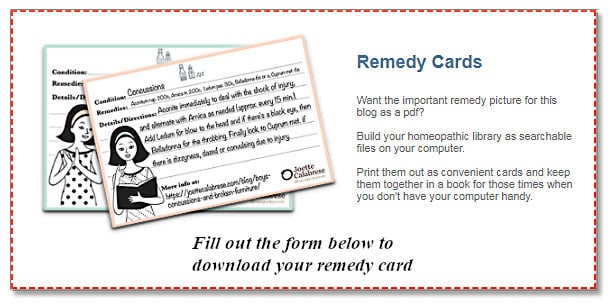
You may be asking, “What on earth do David and Goliath have to do with cell salts?” Well, let me tell you a story about my father’s experience with Nat phos.
You see, my father carried a five-pound jug of Tums around with him in his car. I have no idea where he even found this gargantuan size. But, I’m not kidding; he practically bought Tums by the oil drum!
Why did he need so many? Because he popped them in his mouth all the time. They’d work for a short time, but then he’d eat something again and have to pop a couple more. Tums were his constant companion.
When I first started learning about homeopathy, I said, “Dad, why don’t we replace your Tums with the cell salt Nat phos 6X.”
Visualize this — my little, itsy-bitsy bottle of Nat phos was suddenly in a face-off against his giant drum-size of Tums. It was like David versus Goliath. You remember how that battle turned out, right? Well, this battle was no different.
Dad loved this small, elegant homeopathic medicine because it fit in his shirt pocket, whereas his giant Clorox-bottle of Tums wasn’t exactly portable.
He most especially loved that he no longer was popping tablets into his mouth continually.
At first, he had to take his Nat phos several times a day: before every meal and before bed. But in short order, he could take it once a day (before lunch and wouldn’t need it again before dinner or before bed).
Soon, he only required it every couple of days. And, eventually, he could eat almost anything! He just needed it on certain occasions when he ate poorly — most specifically, fried foods from restaurants.
David — little, tiny Nat phos — beat the stuffing out of the Goliath Tums!
So, you can imagine my surprise, when a couple of years later, I noticed my father popping a Tums into his mouth.
His acid indigestion had returned, and — even though he was a brilliant man, a trained musician, and an excellent businessman — he had completely forgotten the success he had with Nat phos. (Or maybe it was just because he had an inventory of thousands of Tums in “back stock” and wanted to use them up.)
I said, “Dad, what are you doing? Why aren’t you taking Nat phos?”
“Oh, yeah. That’s right!” And with that, he returned to his shirt-pocket-sized homeopathic remedy. This time, his acid indigestion was uprooted in much shorter order — a couple of weeks rather than a couple of months. That’s how homeopathy works!
So, when you think of acidity, think of Nat phos. It can be beneficial in cases of gout (described in a Moms with Moxie podcast as one remedy we use in conjunction with others).
It can also help with weight gain, as described in my blog, Fat, Frumpy and Frustrated (especially for those with acidity issues indicated by soft, sour stools or even turning jewelry green on fingers).
Like all homeopathic remedies, Nat phos may come in a small bottle, but it packs a powerful (and victorious) punch!
Warmly,

P.S. If you’re interested in learning more about the cell salts, and how I use Nat phos for a host of other conditions, check out my CD/digital download entitled, Cell Salts; The Easy Homeopathy™ to help you get a firm grasp on all of the cell salt remedies. Nat phos actually has hundreds of uses that I know you’ll put into service in no time.
And of course, if digestive issues are your specific interest, my course Good Gut, Bad Gut goes deeply into many seemingly complicated topics relating to the digestive system. (Actually, with my protocols, they’re often super easy to fix.)
P.P.S. If you’re looking for all of the posts in my series on the cell salts, here are the links for your convenience:
Calc phos
Ferrum phos
Mag phos
Nat phos
Kali phos
Calc fluor
Nat mur
Nat sulph
Silicea
Calc sulph
Kali sulph
Kali mur
P.P.P.S. For all Gateway to Homeopathy Study Group graduates, keep your groups together. You'll want to know Cell Salts like the back of your hand — Gateway II should be at the top of your list.




What cell salts would you recommend for a childs teeth that are decalcifiying. Dentist says it is not cavities but decalcification. Note her baby teeth completely crumbled starting at age 2. Had 4 crowns on the two year molars until the tooth under it discinigrated. She was breastfeed until 4 1/2 years old. has good nutrition, raw milk, etc. Any ideas to start with? I have had her on cal phos cell salts for about 6mo.
You’ll learn about this condition as you study further in my cell salt CD and courses. Meanwhile, CP is a v. good place to at least start.
Any ideas would help
I am finding it difficult to “get a card”, Lately, the “I am not a robot” is not working properly.
I’m having my IT person contact you.
I am having the same problem with getting the remedy card.
Stephanie will contact you.
My father-in-law has gout in his ankle that flairs up on and off. I clicked over to read about it on the podcast as well. My question is how/when do you know to use the cell salt vs the 30c?
It’s a matter of learning specific protocols.
Boo whoo it did t work for fat fruppy me. But I fit that pitcue. But it takes care of the acid for me great. Just didn’t or hasn’t help me lose and been taking for months for acid.
I’ve also had trouble with getting to the remedy cards lately. The robot test comes up, but it won’t work right. Can an IT person help me too?
Can we take it as often as needed
Its often taken as needed but within reason. This means once it begins to act we stop and resume only as its called for.
I just received your Top 100 Remedies kit in the mail and am super excited to finally have my own kit. I know you mentioned above that it depends on the protocol, but I was wondering if there are any protocols that call for 30c? I’ve hunted around and have only found 6x protocols, and I’m just curious about the principle behind why the lower dose is better for cell salts (if that’s even the case).
Yes, there are plenty of protocols that include 30c but if you want to learn how to use 30c potencies, you might want to start or join a Gateway to Homeopathy study group. We concentrate on 30c more in these study groups.
Do you have any recommendations on your website for water retention? I did a word search, but nothing came up.
I have not written on the subject.
Thanks so much for the response, Joette, and I’m sorry, I didn’t ask the question well. I was wondering specifically about using the 30c potencies of the cell salts in my kit. Incidentally, I just finished leading a Gateway I group–loved it, learned so much!! But again, even in the First Aid section, the cell salts are used in only a 6x potency. I’m curious as to why the lower dose prevails!
They don’t prevail, they are just used for different situations.
If I have reasons to take a few different cell salts, wouldn’t it make sense to take the Bioplasma instead?
Its always better to be as tidy as possible in terms of what you’re using. Begin with the idea that we all need all of the cell salts. It’s a matter of the most needed ones that cover the most noteworthy symptoms.
I appreciate the time you take to answer so many questions from so many people, so I hate to ask you for more, but I’m confused by your answer:
“we all need all of the cell salts” sounds like a YES to Bioplasma. But “better to be tidy” and “the most needed ones” sound like a NO to Bioplasma…
By choosing the cell salt or 2 or even 3 that cover the most looming condition instead of taking all 12, its likely that you’ll have better results because it/they will be chosen based on specific needs rather than a broad, overall picture.
Additionally, if you actually don’t need one that’s included in Bioplasma, after time, it will likely begin to prove.
Thanks again. Sounds as though Bioplasma is really not for anybody!
Hi Joette! Would Nat Phos 6x be a good remedy for when you have overdone it in the garden or done too much housework and are feeling achy in your muscles with lactic acid buildup? I was wondering if it would help with this type of acidity? (I just finished scrubbing all the grout on our tile floors, and now have really achy arms!)
Yes, it’s a good choice.
Arnica will be good choice too
Joette, You recommend some cell salts in 3x. Would it be good to use Nat phos in 3x if I have it or this one should be only in 6x as a protocol?
I am having difficulty getting the remedy card for Nat Phos
i don’t have acid reflux per se but there is a burning sensation in my upper abdomen when my stomach is empty, it has been happening since 2016, also recently i feel like something is lodged in my throat. i have been religiously taking nat phos 6x 4 tabs 2 times daily. since last month i have been taking 12x. but i feel like nothing seems to be happening. i really need your help, i’m worried about my stomach. i don’t want to do a gastroscopy and take allopathic meds. i have responded well to homeo in the past for different problems. so i’m worried why i’m not responding now. but i have full faith in homeopathy. i just don’t want to develop a stomach ulcer or gerd. i want to cure this burning sensation. sir please help.
If a homeopathic (or any medicine for that matter) doesn’t act, its time to halt its use and go on to the next protocol. Should you be interested in learning more to be able to do this on your own, you might look further on my blog or take my course “Good Gut Bad GUt”.
If you want to work with me privately, you may contact my office.
how do i switch to the next protocol? i don’t think i have the money for the course or personalized treatment, i’m a student.
Without taking your case id be reluctant to personally guide you. But if you dig around on my blog, I’m pretty certain you’ll find which medicine needs to be considered.
hello Ma’am, i did check around and found nux vomica, closest match. i do suffer from hypothyroidism and constipation and have sluggish digestion. do you think it’ll help? please help me.
I’m sorry but I can not take cases nor give personal advice on this forum. You may want to join one of our remote study groups, take a course or if you’d like to meet personally with me you may contact my office.
So glad I stumbled Upon your Fb live about Nat phos 6X. I have cough associated with the acid reflux. Phlegm gets into my throat and that causes cough. Do you think Nat phos will help take care of that too or do I have to take something else for that. Thanks for taking the time to help so many people.
I can’t tell you what will act for you. If you decide to try NP and it doesn’t help you, consider my online course titled “Good Gut Bad Gut” found here
https://courses.joettecalabrese.com/
Thank you so much for your reply. I will try and see. How will I know if it is working or not ? How long should I try before I decide one way or other ?
I would like to share a success story of David (nat sulph) vs. Goliath (inhaler).
I turned to nat sulph 6c to treat my husband’s asthma that is brought on by humidity/damp. In the past, we’d be up all night as he used his inhaler– getting relief for only 20-30 minutes at a time. With nat sulph, after 3 doses spaced 15 minutes apart, he promptly fell asleep with zero breathing difficulty. He woke again at 4am, took 3 doses 15 minutes apart, and fell asleep right after the third dose. When he woke up, he felt a tiny bit in his chest, but his morning black coffee took care of that.
A week later, when he had asthma again, I administered 2 doses of nat phos 30 minutes apart, and he fell asleep. Again, his breathing was quiet and normal. He woke at 4am but was able to fall back asleep without taking anything. In the morning he felt it still, so he took 1 more dose, and within 15 minutes was fine. Since then, even with high humidity occurring, he has been totally fine. It was incredible to behold.
My understanding has always been that you have to wait 30 minutes after eating/drinking to use a remedy and then wait another 30 minutes after. If using for indigestion, would you have to wait the 30 minutes? Thanks
There’s no specific set time. It depends on what you’re treating and urgency for the need to repeat a dose. When suffering is intense as in an acute, dosing may be more tightly administered.